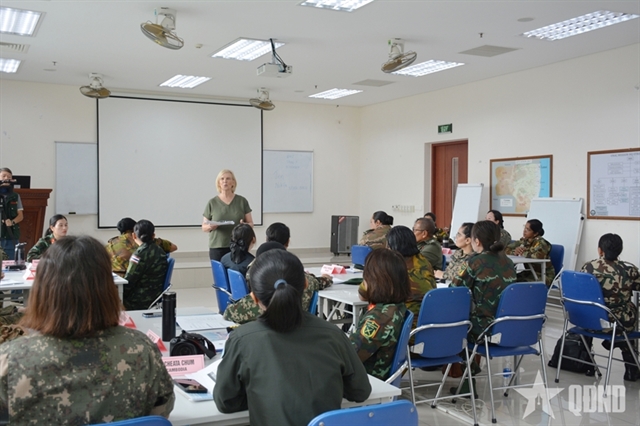Antarctica group returns with message
One week after the trip, Hong spoke to reporters. "Why did we have to travel far away to encourage environmental protection? Because when we were in
The group, including five women, received financial support from local businesses.
"It was a good start for us because in the past most of the donations we received for the environment came from foreign organisations. This change indicates a rising awareness in the local business community," Hong said.
For the International Antarctic Treaty Expedition 2009, the Vietnamese group joined 41 representatives of 17 other countries, along with a crew of more than 100, who travelled on the Clipper Adventure icebreaker, leaving in mid-November.
Departing from
Swan was the first person to walk to both the North and South poles. He has dedicated his life to preserving
Unlikely destination
After sailing through the Drake Passage, the most dangerous strait in the world where the currents of Pacific and Atlantic oceans meet, the group explored Antarctica’s beautiful Danco and Deception islands, the Orne and Mikkelson ports and
Early on November 21, the explorers set foot on the South Pole, where everyone was delighted to see thousands of penguins. Although they wanted to hold the creatures, they were told to keep at least five metres away from them.
"Each day in
Nguyen Lan Anh recalled that all members had to use sunscreen.
"There was mostly no sunshine, but due to holes from the ozone layer, sun lotion was necessary to protect our skin," she said.
Anh and the other crew members will never forget the feeling of digging snow and making a place to stay overnight in
They gathered and celebrated the birthdays of two members with a cake made from ice and a special gift, a bottle of
Although the trip afforded them the opportunity to tour the area, the crew’s main purpose was to participate in training and seminars about climate change with different speakers.
"We learned a lot and understood more deeply about environmental protection," Nguyen Thu Thuy said.
"We will remember forever the effort of Robert Swan and other participants when they were trying to catch a plastic bag blown away by the wind. Because of the low temperature, everything will be preserved for at least several hundred years," Lan Anh said.
Anh said Swan has a house in
Subtle changes
The most impressive sight for Hoang Thi Minh Hong on her second trip to
"I tried to take as many photos as possible because these mean that
She described how parts of huge icebergs fell off into the sea, and realised the devastating effect of climate change on humans.
Tourism has become more popular in
"On this trip, we met several other icebreakers and knew for sure that some were for tourism," Hong said.
"Strict rules regulate that tourists have no right to damage
The World Bank has announced that
One-third of the Mekong Delta, home to 17 million people, could be submerged under water.
The message the group brought back from their journey was one of hope and determination to save the planet.
"We like Robert Swan’s saying: the greatest threat to our planet is the belief that someone else will save it," Nguyen Lan Anh said. "So we have decided to do something right now ourselves."
Their action plan aims to change the habits of Vietnamese people.
"Don’t use plastic bags and bottles, turn off lights if you don’t need them, use public transportation or bicycles, save energy from air conditioning and cooking, and reduce consumption of water and meat," Hong said.
Wearing a T-shirt with the sentence "I was normal until I met Robert Swan", Le Tuan, the only male in the group, said: "Seeing Robert Swan and the group helped me change my views and I understand that we, who have no authority, cannot protect the environment through science, but from our heartfelt commitment."
Le Tuan and many others, including myself, have pledged to protect the environment, not later, but right now, inspired by Swan’s courage and insight.







